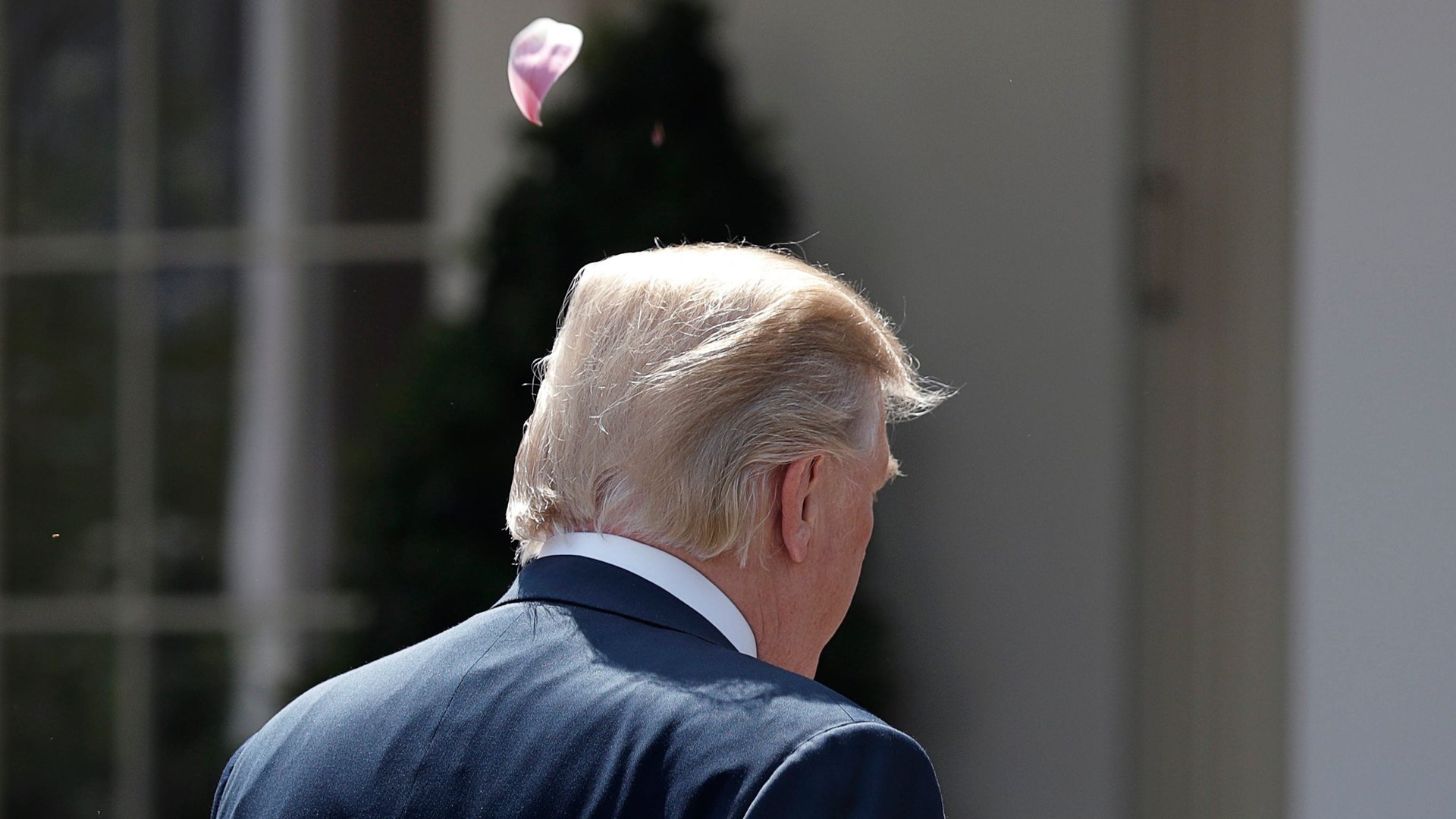Economists are warning Donald Trump about tariffs with a letter from the 1930s
One unintended consequence of Donald Trump’s protectionist impulses is that the dry details of trade policy history are now trendy. So much so that the once obscure Smoot-Hawley Tariff Act of 1930 has suddenly become a headline-grabbing topic in publications ranging from NPR to Breitbart.


One unintended consequence of Donald Trump’s protectionist impulses is that the dry details of trade policy history are now trendy. So much so that the once obscure Smoot-Hawley Tariff Act of 1930 has suddenly become a headline-grabbing topic in publications ranging from NPR to Breitbart.
The bill—named after the two Republicans in Congress who pushed it—is an echo of the kind of politics-driven policies the current president is rolling out today. But perhaps its recent surge in popularity has less to do with the bill and more to do with where it led the US: into a trade war that ultimately worsened the Great Depression.
The impact of Smoot-Hawley is a cautionary tale that reinforces the message free-trade advocates are desperate to spread: that protectionism is bad for the economy. A group of economists, convened by the National Taxpayers Union, are taking the parallels between Smoot-Hawley and Trump’s tariffs even further. They are recycling a letter signed by 1,028 economists, sent to president Herbert Hoover in 1930 to protest the original bill, to warn the current White House occupant of the dangers of tariffs.
The new version of the letter, which is being circulated via a Google form, has already been signed by a few dozen prominent economists, including several Nobel laureates.
A lasting message
Barring a new introduction and a few edits, the current letter is identical to the original. Its main arguments are that tariffs on imports will increase consumer prices; that they will spur other countries to respond in kind, making American products more expensive abroad; and that they will create geopolitical tensions. “A tariff war does not furnish good soil for the growth of world peace,” it warns.
Bryan Riley, a Taxpayers Union trade expert who is behind the new letter, says he saw no need to rewrite the 1930 version because its ideas are timeless. “The very same things that economists were talking about in 1930 are all still relevant,” he notes.
Economists were as skeptical about the tariffs back then as they are today, because in both cases the reasons behind the taxes have more to do with politics than economics. The Smoot-Hawley bill’s stated goal was to bolster ailing American farmers, but it was useless in practice. Farmers at the time were suffering from depressed commodity prices worldwide, not cheap imports, according to Douglas Irwin, economics professor at Dartmouth College and author of Clashing over Commerce: A History of US Trade Policy.
“It was purely politics,” Irwin said during a presentation of the book last year. “Even the farmers realized that they’re exporting a lot of their crops. They don’t really need this act.” On top of that, the initial agricultural tariffs sent other lawmakers on a mission to protect their own state industries—also for political purposes.
Economists today say Trump is similarly using tariffs on steel and aluminum to pander to the states that produce them. Like the Smoot-Hawley bill, they will do little to help the workers they are intended to protect; these days jobs are largely being lost to technology, rather than to cheap imports. Meanwhile, the resulting higher costs for the metals will hit the industries that use them, which employ many more workers.
A message to Americans
The original letter did not convince lawmakers to rethink their protectionist instincts. Some dismissed its authors as “college professors who never earned a dollar by the sweat of their brow by honest labor,” and “intellectual free traders, who seem to be more concerned with the prosperity of foreigners than they are with the well-being of our own American people.”
Given the support of the bill among his party, Hoover signed the Smoot-Hawley bill despite the economists’ warnings.
In 1972, Paul H. Douglas, who was an economics professor at the University of Chicago when he signed the 1930 letter, wrote about what happened next: “All our predictions came true. The Depression deepened and the Western democracies fell apart.” Still, he added, the letter later helped justify the need for Congress to lift the tariffs.
Riley, from the Taxpayers Union, says the hope is that the latest letter will similarly make a case for free trade. “We really want to show that support for the benefits of trade is widespread and overwhelming,” he says.
Daron Acemoglu, an economist at the Massachusetts Institute of Technology, signed the new letter because he believes the policies coming out of the White House “are bound to hurt most Americans.” But he’s predicting that its contents will again be ignored.
“There is very little chance that the current administration, which is not interested in furthering anybody’s welfare other than the president and his immediate family, would listen to it,” he says.